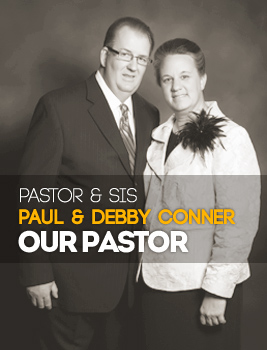
by Paul Conner
THERE WAS AN EXPLOSIVE atmosphere in the sanctuary that night. The spirit of God was moving as the choir sang, and saints were dancing all over the sanctuary. A roar of tongues seemed close to lifting the roof off the building. I caught a glimpse of Heaven that I will never forget: African immigrants dancing in the same aisle as African Americans; natives from the Tohono O’odham Nation running alongside White River Apaches; a sister from Burundi talking in tongues as the deaf worshiped alongside the hearing; Peruvians, Caucasians, Mexicans, and Filipinos praying together and weeping in the altar.
This must be similar to what John saw and felt as he wrote Revelation 7:9:
“After this I beheld, and, 10, a great multitude, which no man could number, of all nations, and kindreds, and people, and tongues, stood before the throne, and before the Lamb, clothed with white robes, and palms in their hands.”
Today it seems that cultures and ethnic groups are becoming more divided. Individuals hold on to injustices and hurts inflicted by other ethnicities. Some in our society even argue about whose lives matter the most. This should not be so in the church. John vividly described many nations, kindreds, and peoples who were redeemed by the same cleansing blood of Jesus. They all were saints praying to the same God, kneeling around the altar, encouraging one another, and rejoicing together.
This is a picture of what Heaven will be like. This is revival! This is Joel’s prophecy come to pass! This is the church fulfilling its purpose! This is saints obeying Mark 16:15 and taking the gospel “to every creature.” This is God’s doing!
Jesus taught us to pray, “Thy will be done on earth, as it is in heaven” (Matthew 6:10). Our goal is for the church on earth to be, as much as possible, like the
future one in Heaven. If John saw every kindred, tongue, and nation around the throne in Revelation 7, shouldn’t that be what our gatherings look like?
No culture left behind. No ethnicity forgotten. No immigrant group without a witness.
This is what we strive for. Approximately three years ago, a group of African immigrants from Burundi came our way. They were fleeing a war-torn country, strife, genocide, hunger, and heartbreak. (It is no surprise that the 2016 World Happiness Report shows Burundi as the world’s least happy nation.) A group of fifteen to twenty showed up looking for a church that believes the same doctrine as their church in Burundi. We brought them in and offered a place for them to meet for service. Since then, more have immigrated and more have been converted. They are now numbering around ninety to one hundred souls. They left behind friends and family, seeking refuge, happiness, and a safe place to live. Along the way, they also found a place for their families and children to worship God.
However, multicultural ministry is not all a bed of roses. Sometimes it takes some innovation and a lot of patience as each culture acclimates to being around the others. Some of the Burundi families don’t speak English, yet they want their children to be in our Sunday school classrooms. As a result, we’ve incorporated one of their bilingual adults into each of our Sunday school classes.
(Every Sunday morning there are three different services, as well as Sunday school, simultaneously occurring. The Burundians meet in our fellowship hall, a Spanish speaking service is in the chapel, and the English service is in the sanctuary. This can at times present logistical problems, but it always works out because it is God’s will and desire “that [his] house may be filled” (Luke 14:23). Throughout the year we hold special services when everyone comes together for a power-packed Holy Ghost filled service. These times are always notable and the presence of God is so rich. Multicultural ministry is a challenge, but very rewarding as you see individuals’ lives change and God start blessing.
John vividly described many nations, kindreds, and peoples who were redeemed by the same cleansing blood of Jesus.
If you are struggling to fill your church with one culture group, reach out to another one. Contact a local refugee resettlement program. Hosting and teaching ESL classes have proven to be an incredible tool for building relationships and opening the door for the Word of God to be taught. You don’t have to go to a foreign country to reach other cultures; they’re right here in America!
People may ask the question, “How many culture and language groups should we target?” Consider this: How many culture and language groups are represented in your city? That’s your target number.
Do you want to get a glimpse of Heaven? Reach out to every nation, kindred, and tongue. God wants His house to be filled.
PENTECOSTALHERALD.COM 25

